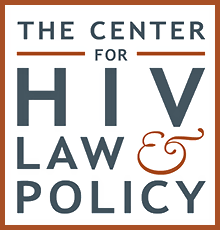
New York’s Highest Court Says ‘No’ to the Felony Prosecution of a Person Living with HIV for Having Consensual Sex
February 19, 2015 – Today, the New York Court of Appeals, the state’s highest court, affirmed a lower court ruling reducing charges brought by the District Attorney’s Office in Onondaga County, New York, against a young Black man living with HIV for allegedly engaging in consensual sex without disclosing his HIV status to his sex partner.
In this case, People v. Williams (http://hivlawandpolicy.org/sites/www.hivlawandpolicy.org/files/People%20v.%20Williams%2002.19.15.pdf), the prosecution attempted to charge the defendant with reckless endangerment in the first degree – a felony punishable by up to 7 years in prison. Finding that the defendant’s alleged conduct did not create a grave risk of death, the trial court reduced the prosecution’s proposed felony charge to second-degree reckless endangerment, a misdemeanor. An appellate court affirmed the reduction. Undeterred, the prosecution appealed to the New York Court of Appeals, which ruled in favor of the defendant today.
“This is a victory for the defendant and for all people living with HIV,” said Ivan Espinoza-Madrigal, Legal Director of The Center for HIV Law and Policy (CHLP), which filed a friend-of-the-court brief in this case. “Far too often criminal charges are based on stereotypes and misconceptions instead of current medical knowledge about HIV. Prosecution should not hinge on uninformed beliefs and policies rooted in ignorance about the routes, risks, and consequences of HIV transmission,” added Mr. Espinoza-Madrigal.
The New York Court of Appeals found that the defendant’s consensual sex did not meet the legal standards for the more serious charge. The decision noted: “Here, there is no evidence that defendant exposed the victim to the risk of HIV infection out of any malevolent desire for the victim to contract the virus, or that he was utterly indifferent to the victim’s fate.”
“When an HIV diagnosis can trigger first-degree reckless endangerment charges, the only behavior likely to be deterred is getting tested and into treatment. Individuals, and the communities where they live, are at greater risk of disease when the law and rational public health approaches are at odds,” said Terrance Moore, Director of Policy and Health Equity at the National Alliance of State and Territorial AIDS Directors (NASTAD), an organization that joined CHLP’s brief.
CHLP’s brief was filed on behalf of medical, public health, and community organizations, including NASTAD; Gay Men’s Health Crisis (GMHC); National Black Leadership Commission on AIDS, Inc. (NBLCA); Latino Commission on AIDS; Sisterhood Mobilized for AIDS/HIV Research & Treatment (SMART); and Dr. Jeffrey Birnbaum’s Health and Education Alternatives for Teens (HEAT) Program.
The case is now expected to return to the trial court for further proceedings on the lesser charge.
Prosecutors not giving up on charging Syracuse man with felony for giving partner HIV
Onondaga County prosecutors want the state’s highest court to decide the fate of a case involving a Syracuse man who infected his partner with HIV after not warning the victim he had the virus. The district attorney’s office has sought for years to charge Terrance Williams with a felony for giving his partner the AIDS-causing virus in 2010. But a state appeals court ruled that Williams could only face a misdemeanor. That followed a ruling by state Supreme Court Justice John Brunetti that also limited the charge to a misdemeanor.
Now, prosecutors are taking the challenge to the state Court of Appeals, which has not decided if it will hear the case. First Chief Assistant District Attorney Rick Trunfio challenged two parts of the current ruling:
• That infecting a partner with HIV did not constitute “depraved indifference” to human life.
• That HIV did not cause a “grave risk” of death.
Trunfio said the state court’s definition of depraved indifference was “in chaos” as the state’s highest court has continually narrowed its scope. “What used to be depraved indifference isn’t anymore,” Trunfio said. The frustration with “depraved indifference” came up recently when District Attorney William Fitzpatrick said that precedent prevented him with charging Romeo Williams with depraved indifference murder in the death of elderly Jim Gifford. Williams was instead charged with manslaughter.
The DA said the court’s definition of depraved indifference is far narrower than what most people would consider. “I would not correct someone if they said, ‘That sounds depraved,'” Fitzpatrick said of the Williams case. “The problem is the court of appeals has given a specific set of circumstances.” In regards to the HIV case, Trunfio said that only the state’s highest court could clarify whether depraved indifference applied.
The prosecutor also argued that HIV should be considered to cause “grave risk” of death. So far, the courts have ruled that the victim’s doctor’s testimony showed that HIV could be controlled with medication. But Trunfio said the doctor’s statements were not entirely considered. “We believe a lot of testimony was ignored,” he said. Williams was due to appear in court Tuesday on the reduced misdemeanor charge, but the case has been stalled until the Court of Appeals decides if it will hear the DA’s appeal.
Felony Charge Nixed in HIV Exposure Case
A unanimous five-judge New York appeals court panel has rejected the argument that an HIV-positive man should face felony charges, carrying a mandatory minimum prison term, for exposing another person to the virus by failing to disclose his serostatus before having unprotected sex.
Turning back an appeal by Syracuse District Attorney William Fitzpatrick’s office, the November 15 opinion from the Fourth Department of the New York Appellate Division affirmed a ruling by Onondaga County Supreme Court Justice John J. Brunetti that reduced the charge to a misdemeanor.
According to the court’s opinion, Terrance Williams “engaged in unprotected sex with the victim on two to four occasions without disclosing his HIV-positive status.” After their sexual relationship ended, Williams informed the victim that a former sex partner had tested positive for HIV and urged the victim to be tested. The victim, whose gender is not identified in the opinion, was diagnosed as HIV-positive several months later and complained to law enforcement.
Indicted on the charge of “reckless endangerment in the first degree,” a Class D felony, Williams faced a potential prison sentence of two to seven years. Conviction on this felony charge requires proof that “under circumstances evincing a depraved indifference to human life, [the defendant] recklessly engages in conduct which creates a grave risk of death to another person.”
Kristen McDermott of the Frank H. Hiscock Legal Aid Society in Syracuse, representing Williams, moved to have the charges reduced, arguing the facts would not support the felony charge. Williams told police “he did not disclose his HIV-positive status to the victim because he was afraid [the victim] would not want to be with” him and that he “loved [the victim] so very much.”
When he found out the victim tested positive, Williams wrote a letter apologizing “because he was ‘so upset’ and ‘felt terrible,’” according to the court’s opinion. Williams’ attorney argued that these facts would not support a finding that he exhibited “depraved indifference to human life” or that his conduct created “a grave risk of death to another person.”
Testimony offered by victim’s doctor ended up supporting Williams’ motion. According to the court’s opinion, the doctor, “an infectious disease expert, testified that the ability to treat HIV has increased dramatically over the past 15 years, with over 20 different anti-viral medications available for treatment. The expert testified that although an HIV-positive diagnosis may have been tantamount to a death sentence in the past, with treatment, the prognosis today is ‘outstanding,’ particularly when a patient promptly learns that he or she is infected and seeks treatment. Indeed, the expert testified that patients with HIV who take their medication, eat well, do not smoke, and reduce their alcohol intake can live a ‘very healthy, normal lifestyle,’ and he expected a similar prognosis for the victim.”
Justice Brunetti agreed with the defendant that he had been over-charged, and reduced the charge to “reckless endangerment in the second degree,” a Class A misdemeanor with a maximum prison sentence of one year. The district attorney appealed that ruling to the Appellate Division.
“Although defendant may have acted with indifference to the victim’s health, his conduct lacked the ‘wanton cruelty, brutality, or callousness’ required for a finding of depraved indifference toward a single victim,” the appeals court wrote. “The fact that defendant encouraged the victim to be tested for HIV indicates that defendant ‘was trying, however weakly and ineffectively,’ to prevent any grave risk that might result from his conduct.” And, the testimony from the victim’s doctor –– which was not contradicted by any other evidence –– “failed to establish that defendant’s reckless conduct posed a grave or ‘very substantial’ risk of death to the victim,” the court found.
The Appellate Division ruling stands in stark contrast to rulings from other jurisdictions upholding lengthy prison sentences in similar situations, usually citing outdated medical sources about the risk of death from HIV infection. Rulings of this type typically are issued in jurisdictions that have specific laws criminalizing the knowing exposure of another person to HIV and mandating severe sentences. New York instead handles HIV transmission under its general penal code, leaving the courts the flexibility to take account of new medical information.
If Williams is a first offender, he may avoid prison time altogether, though the prosecutor’s pursuit of a felony charge doesn’t suggest that a lenient plea-bargain is in the offing.
Reckless endangerment? Judge rules prosecution must show that HIV is dangerous
Syracuse, NY – A Syracuse man accused of infecting a consensual sexual partner with HIV cannot be prosecuted on a felony reckless endangerment charge, a local judge ruled today. In a 12-page decision, state Supreme Court Justice John Brunetti said the prosecution did not have sufficient evidence that Terrance Williams’ conduct created a grave and unjustifiable risk of death to his sexual partner.





Editorial comment
Court transcript available